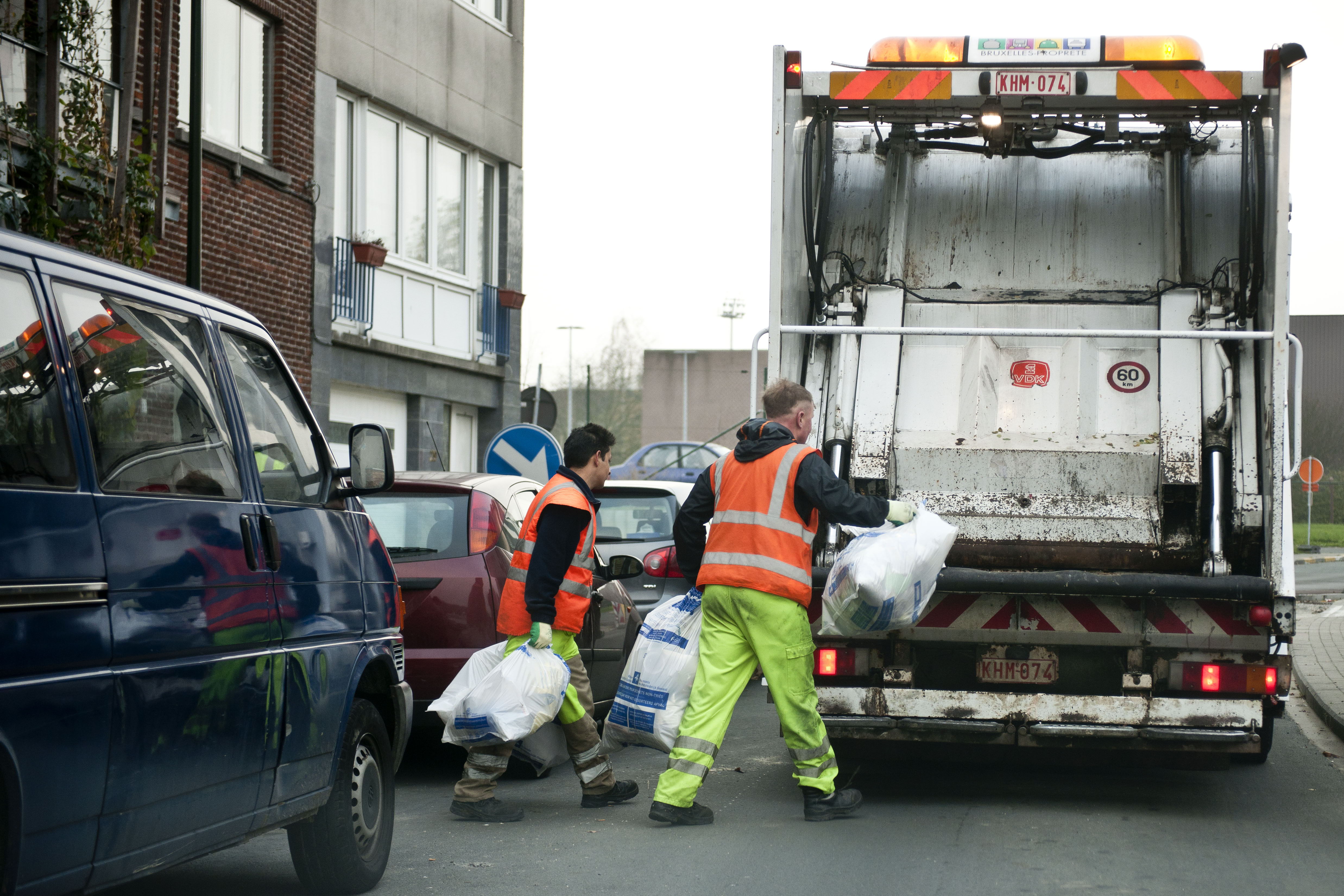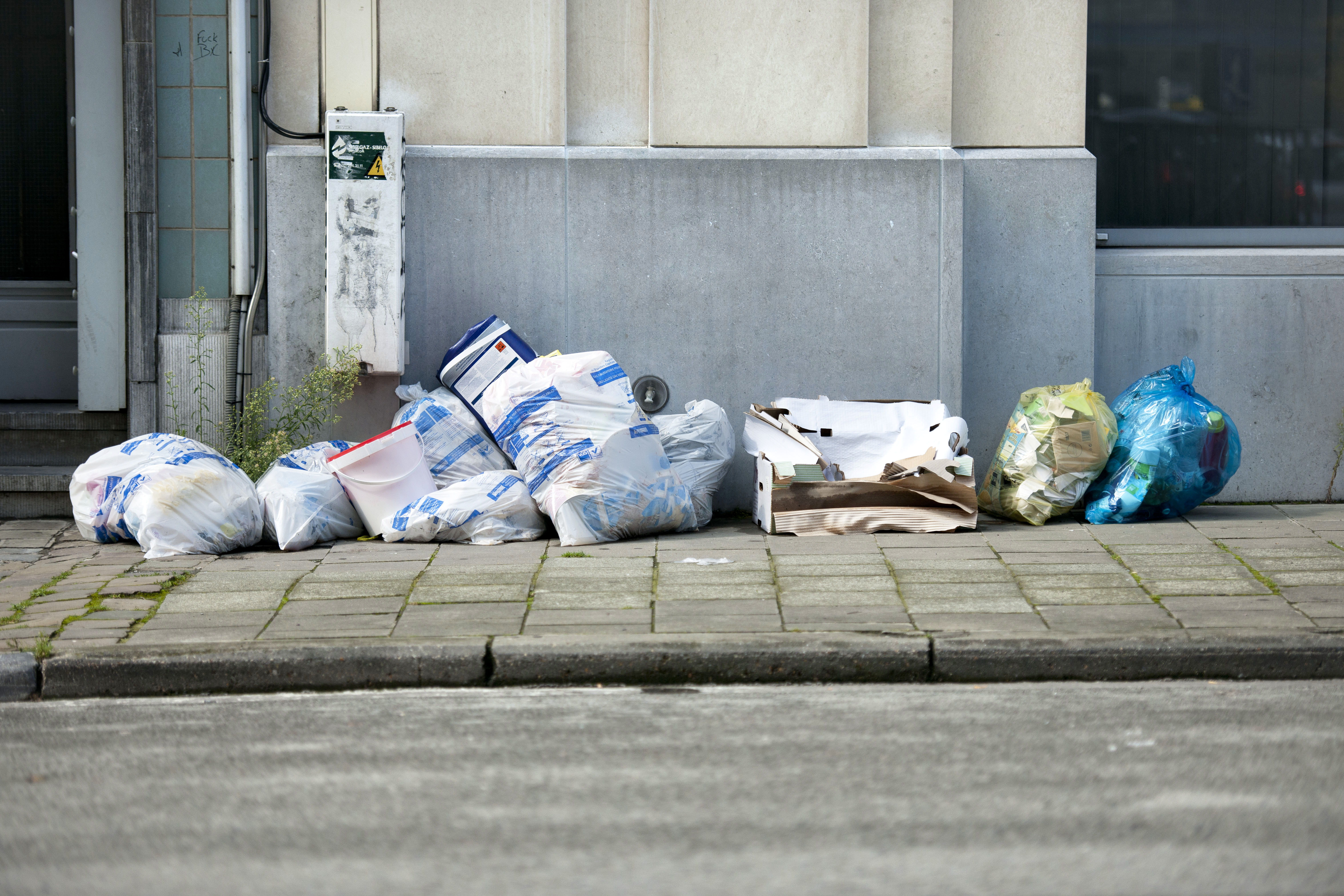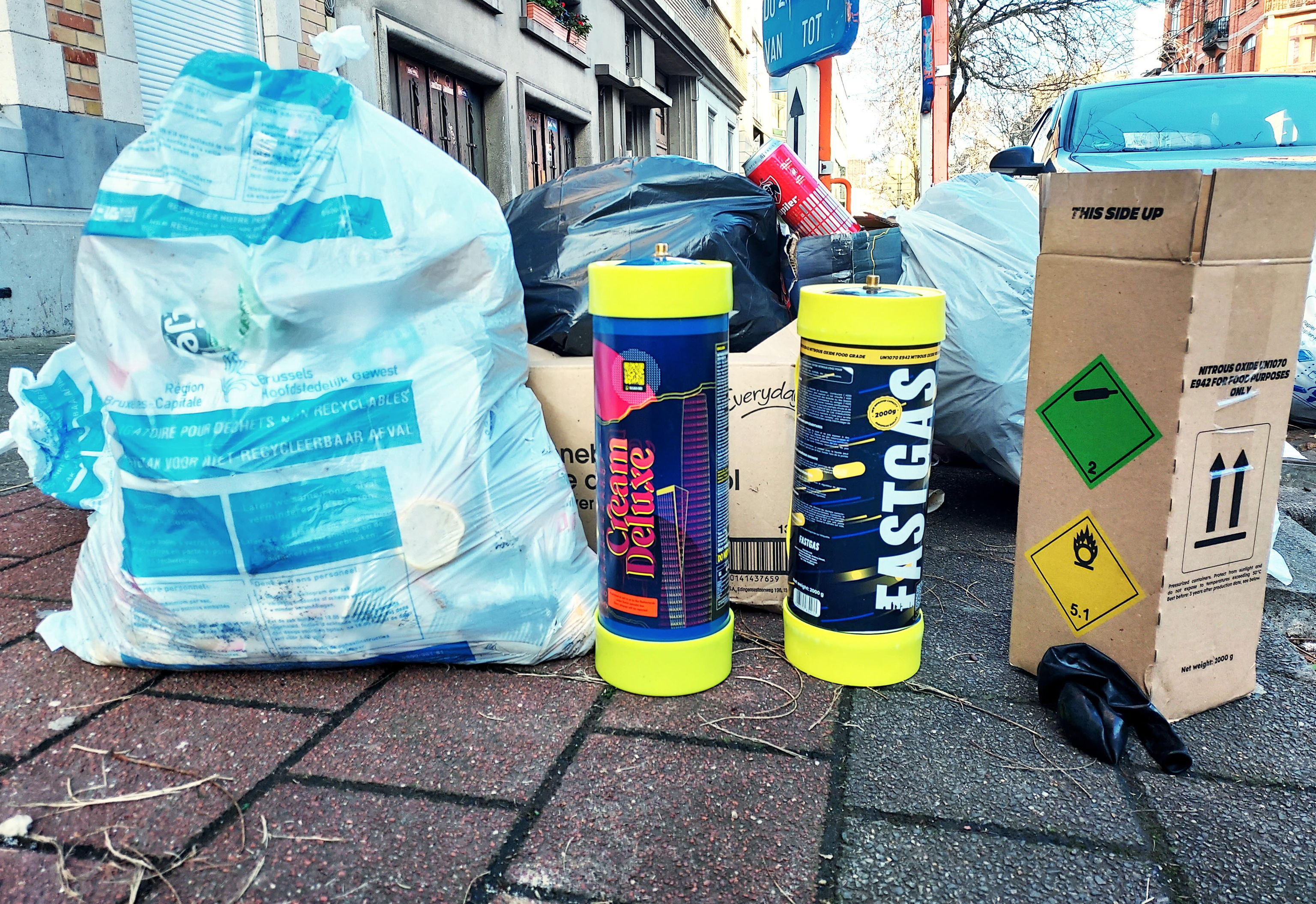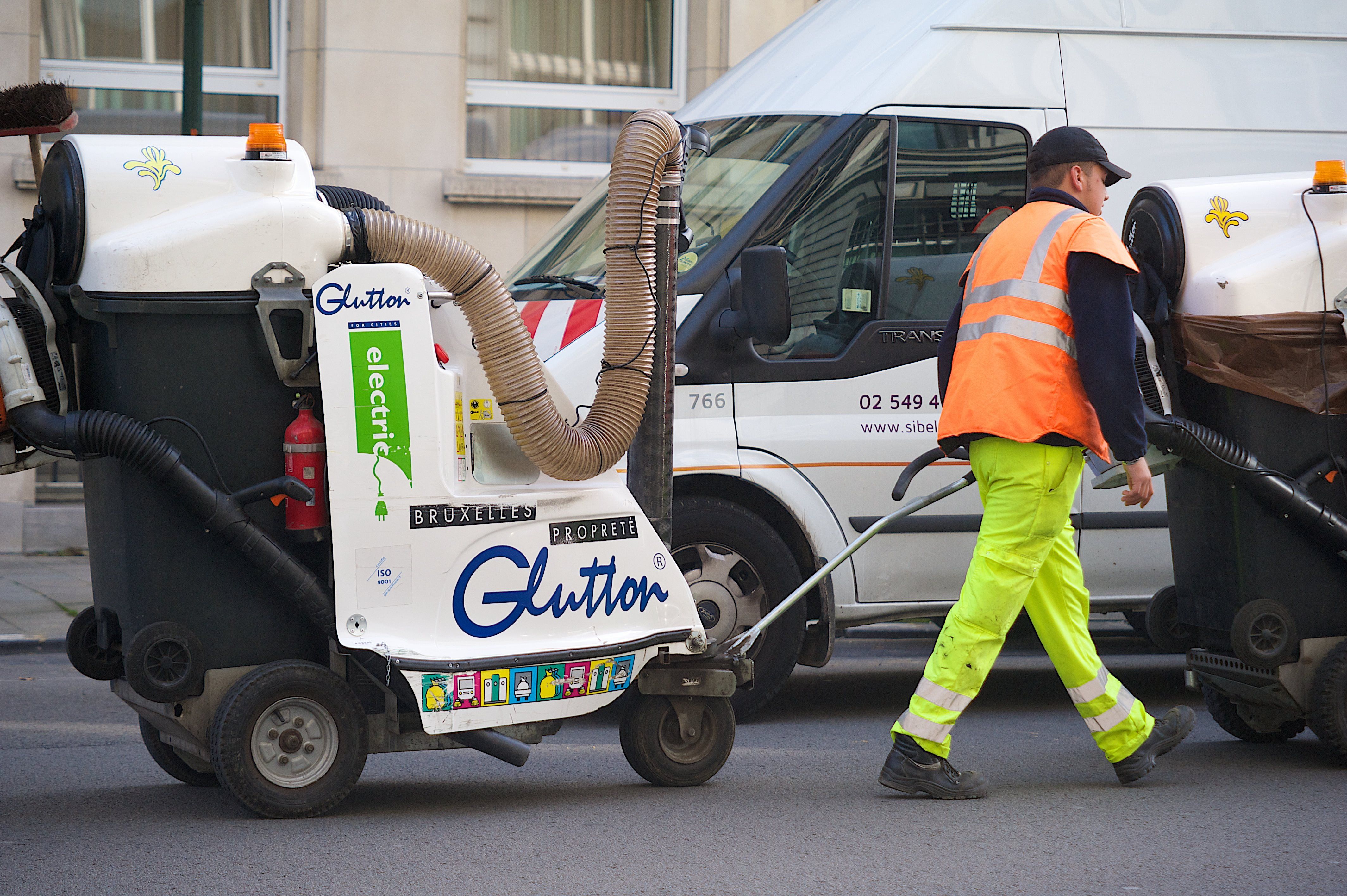Urban challenges: public cleanliness in Brussels

Like most big cities, Brussels faces a number of challenges that affect the welfare of its inhabitants. Today, Belga English examines the lack of public cleanliness in the Belgian capital. What are the main issues and what is being done to tackle them?
Several surveys confirm that the lack of public cleanliness in Brussels is one of the main complaints for its residents. A major problem is rubbish bags left on the streets outside the permitted days and hours. Bruxelles-Propreté, the regional agency for public cleanliness, draws up around 1,000 official reports every year for such offences, representing almost a third of all offences related to waste management and public cleanliness regulations.
The agency organised a "cleanliness triathlon" this spring, to encourage people to only leave their rubbish bags on the street within the legal schedule. The initiative, which ran for about two months, included communication, awareness-raising activities and targeted punitive actions.
“The relationship between raising awareness and punishment is essential if we want to permanently change public cleanliness behaviour and guarantee a pleasant living environment for all Brussels residents. That is the aim of this campaign,” Brussels minister Alain Maron said.

‘Waste tourism’
This autumn, there will be a second campaign focusing on fly-tipping – a major problem at various spots in Brussels. People even come from outside Brussels to dump their rubbish in the city, at roads such as Avenue de Vilvorde at the Port of Brussels. Bruxelles-Propreté calls this phenomenon "waste tourism". The higher prices for authorised rubbish bags in Flanders and Wallonia might be an important cause.
Mobile cameras could offer a solution, but only 20 are currently in service. And a systematic clean-up also solves little. “Either you clean up and waste is dumped again, or you leave everything and the trash accumulates. Both options unfortunately give the impression that fly-tipping is tolerated,” Bruxelles-Propreté spokesperson Adel Lassouli told Brussels news outlet BRUZZ.
The second cleanliness triathlon will include a new awareness campaign, but stricter checks and fines will also be implemented along the roads where most waste is dumped.
"Either you clean up and waste is dumped again, or you leave everything and the trash accumulates"
In a recent interview with La Dernière Heure, the City of Brussels’ councillor responsible for public cleaning, Zoubida Jellab, sounded the alarm about the number of bottles of nitrous oxide or laughing gas in the streets.
“We collect about 350kg of bottles a week in the city of Brussels,” she said. On an annual basis, that amounts to about 20 tonnes. This is on top of the 55 tonnes, or several tens of thousands of bottles, collected by Bruxelles-Propreté in the entire Brussels region.

The possession and sale of nitrous oxide have been banned in Belgium since April this year. But that ban is not an effective solution, as the product is still easily available online. Jellab therefore advocates both stricter supervision of sales and an extensive awareness campaign from the federal government.
Underground containers and AI
Not all household rubbish can be put out on the streets. To make it easier for people to get rid of their other garbage, Brussels is opening two new recycling parks this year. In March, the Recypark Buda along Chaussée de Vilvorde in Neder-Over-Heembeek opened. The second, Recypark Demets, is set to open at the Fernand Demets Quay in Anderlecht in September.
Other solutions are being examined as well. The region has launched a study into the idea of replacing the current bag collection system with a network of underground containers where residents can dispose of their waste at any time of the day. This system avoids a weekly pile of waste on the pavements, which also attracts vermin.
"A container will almost always be placed where there is now a parking space, which not everyone will like"
The study involves analysis of the situation in cities that already use such containers, often underground, like Antwerp and Barcelona. Underground containers have some clear advantages: they are a flexible and convenient solution, especially for residents of small flats, and have a large capacity combined with a small footprint above ground.
There are, however, important challenges. Ideally, they should be located 50-200m from user's homes, but that’s easier said than done in a busy urban environment.
“You are competing with many other functions: green spaces, bike boxes, charging stations and parking spaces,” Maron told BRUZZ. “In practice, such a container will almost always be placed where there is now a parking space, which not everyone will like.”
Switching to this system is also costly. According to Maron, it requires an investment of around 200 million euros.

Bruxelles-Propreté is also looking at the possibilities that artificial intelligence offers. “A street is often cleaned three times a week, regardless of how dirty it is, but AI could help us to work more efficiently,” director Frédéric Fontaine told BRUZZ.
“We could put cameras on trucks to check how dirty the pavements are. They will not recognise faces but detect cigarette butts, dog mess, bottles, etc. We could determine how clean a street is and either reduce or increase the frequency of cleaning, or sweep only part of the street.” A pilot project, started in March, mapped the cleanliness of roads in 10 municipalities for four months.
Citizen contributions
Bruxelles-Propreté has also appealed to the creativity of Brussels residents with a "nudge contest", as part of clean.brussels, the regional cleanliness strategy. The competition aimed “to encourage citizens, associations and groups of designers to design an original ‘nudge system’ to encourage people to behave better in terms of public cleanliness”. A budget of 1,000 euros per selected project is allocated.
Projects could encourage people to produce as little waste as possible, not leave waste in public spaces, sort waste and pick up waste on the go. Bruxelles-Propreté wants to take priority action in places where litter is often dumped, such as around glass recycling containers, in parks and on public squares.
Selected projects will receive guidance and resources to develop the ideas into prototypes. These will be presented at the Brussels Clean Festival, which takes place in the centre of Brussels on 21 September.
*This analysis is based on reporting by Brussels news outlet BRUZZ
Brussels-Capital Region waste collectors filling a truck with rubbish bags © BELGA PHOTO BELGA
Related news

